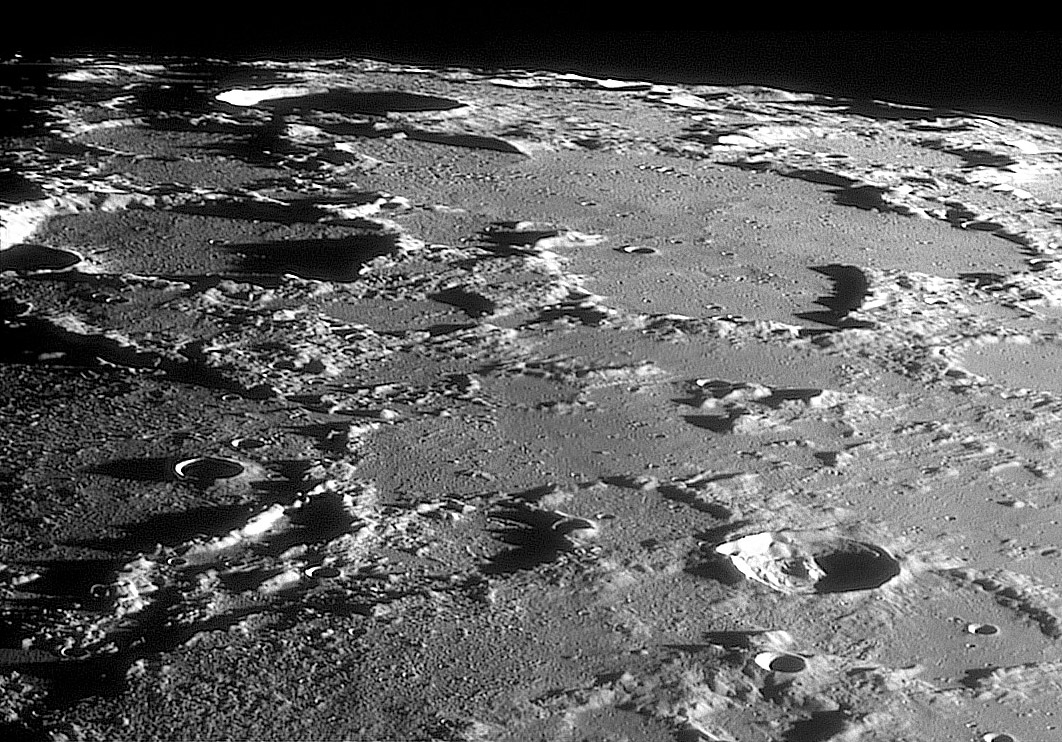
image by Bruno Daversin, La Hague, France
Everyone knows the lunar south pole is full of rugged and dramatic terrain and the north pole is, well, sort of boring. But Bruno’s spectacular photo shows that beauty depends on the telescope, the camera, the lighting, the seeing and especially the person at the controls. The left edge of this fantastic image is just east of the prime meridian and the rising Sun casts long shadows in that direction. Near the top of the image is a dark bowl - an inkwell as Jay Brausch often says - with a sliver of steep rim warming in the Sun. This is Scoresby, a fresh 56 km wide complex crater with central peaks and terraces still freezing cold. Coming down to the left is Barrow with a low spot in its east rim yielding a V-shaped beam of brightness defined by shadows above and below. To the right is the flat and vast floor of Meton and 4 to 6 other craters with merged floors - presumably filled with smooth debris from the Imbrium impact. Near bottom right is C. Mayer, one of the few craters whose first initial - for Christian - is necessary to avoid confusion with a like-named crater -in this case T. Mayer (T. for Tobias), west of Copernicus. C. Mayer is similar to Arago in having a slumped wall block that lays across the floor like a toppled central peak. Poleward of Mayer is a series linear ridges that point back to their source - Imbrium. Not bad for a boring piece of real estate.
Technical Details:
April 6, 2005, Ludiver Observatory 600 mm (24″) Schmidt-Cassegrain & B&W webcam.
Related Links:
Rükl charts 4 & 5
Ludiver’s Moon photos
Yesterday's LPOD: Where People Make Moons
Tomorrow's LPOD: Lpod Enters Year Four!
COMMENTS?
Register, Log in, and join in the comments.



